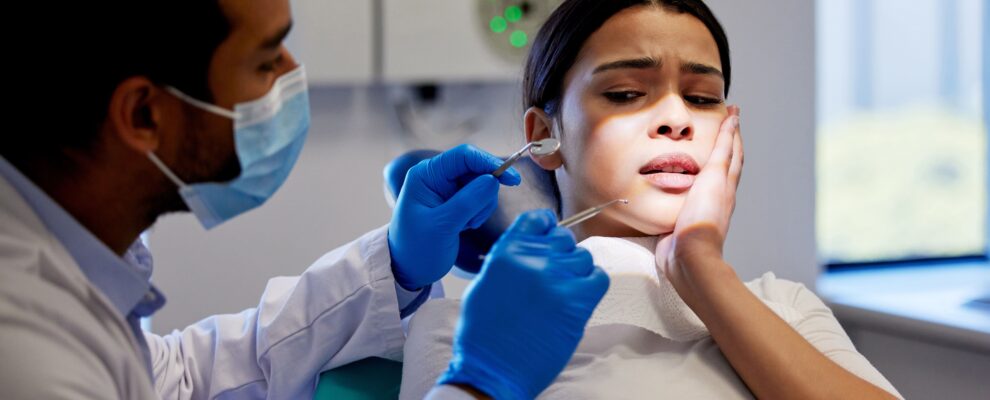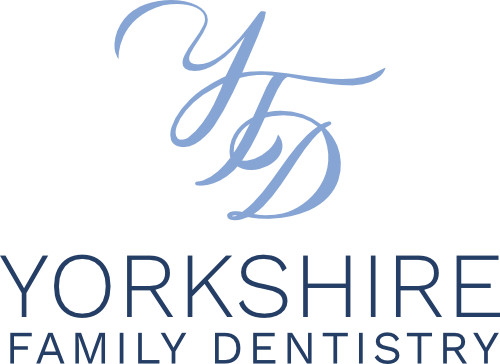How to Tackle a Dental Emergency on Vacation

Dealing with a dental emergency on vacation can be a stressful situation, especially when you are far away from your regular dentist. Summer is a time for travel and fun, but it’s important to be prepared for unexpected situations like dental emergencies. In this blog post, we will discuss common dental emergencies, how to find an emergency dentist while on vacation, and the importance of following up with Yorkshire Family Dentistry once you return home. Let’s dive in and learn how to tackle a dental emergency on vacation.
Identifying Common Dental Emergencies
Common dental emergencies that can disrupt your vacation include toothaches, chipped or broken teeth, knocked-out teeth, lost fillings, and broken crowns.
- A toothache might indicate an infection and requires prompt attention to prevent further complications.
- Chipped or broken teeth can result from a fall or biting into something hard.
- A knocked-out tooth is one of the most urgent dental emergencies, requiring immediate action to increase the chances of saving the tooth.
- Lost fillings or broken crowns can expose sensitive areas of the tooth, leading to discomfort or pain and necessitating quick fixes to avoid infection or further damage.
Recognizing these common issues can help in assessing the situation accurately and seeking appropriate emergency dental care swiftly, minimizing discomfort and potential long-term impacts on your dental health.
Preventive Measures Before Leaving Home
Before setting off on your eagerly anticipated vacation, taking steps to avert a dental emergency is wise. It’s recommended to visit your dentist at Yorkshire Family Dentistry for a routine check-up, ensuring any potential dental issues are addressed well in advance of your departure. This proactive visit can help identify cavities, loose fillings, or other concerns that could evolve into emergencies while you’re away.
Additionally, assembling a dental emergency kit is a crucial preparatory step. This kit should include items like over-the-counter pain relievers, sterile gauze, dental floss, and a small container with a lid in case you need to save a tooth. Don’t forget to include the contact information for Yorkshire Family Dentistry, as they may offer guidance over the phone in case of an emergency.
Knowing the dental care options available in your destination is also beneficial. Researching local dental clinics and storing their contact information could save valuable time in case an emergency arises. Taking these measures before leaving home not only gives you peace of mind but also ensures you’re better equipped to handle any dental issues, allowing you to focus on enjoying your vacation.
How to Find an Emergency Dentist on Vacation
Locating an emergency dentist while traveling can initially seem daunting. However, several resources are available to assist you in this situation.
First, consider leveraging the local knowledge of your accommodation’s front desk or concierge service; they often have a list of emergency contacts, including dental services. For more independent research, use smartphone apps or online search engines, specifying your location to find dental clinics nearby. Websites of dental associations in the country you’re visiting can be invaluable for finding licensed practitioners, especially if you’re concerned about language barriers or standards of care.
Social media platforms and travel forums can also be useful, as they may contain recommendations from fellow travelers who have faced similar situations. Remember to verify the credentials and reviews of any dentist you plan to visit to ensure quality care.
In urgent cases when traveling abroad, embassies or consulates can provide assistance to their citizens in locating medical and dental services abroad. While this may not be the fastest route in an emergency, it’s an option worth considering, especially if you encounter difficulties navigating the local healthcare system.
Having the local emergency number handy, similar to dialing 911 in the United States, is also crucial. This number can connect you to emergency services, which can then direct you to the nearest dental clinic equipped to handle urgent cases. By utilizing these strategies, finding an emergency dentist while on vacation can be made more manageable, ensuring you receive the care you need without undue stress.
Information to Provide Your Emergency Dentist
Upon securing an appointment with an emergency dentist during your vacation, it’s crucial to compile and share a detailed account of your dental situation. Start by detailing the onset and progression of your symptoms, emphasizing the type and location of any discomfort or pain you’re experiencing. If you recall any actions or foods that exacerbated the problem, include those details, as they can offer valuable clues to the dentist.
Equally important is to inform them of any recent dental procedures you’ve undergone, even if they seem unrelated, as well as a list of medications you’re currently taking, including any over-the-counter painkillers used to manage the symptoms. Additionally, disclosing your medical history, especially conditions like diabetes, heart disease, or allergies to medications, can significantly impact the treatment plan the dentist devises. Providing a comprehensive overview ensures the emergency dentist can offer the most effective, immediate care, tailored to your specific needs.
Managing Pain Until You Can See a Dentist
In the interim period before you’re able to visit an emergency dentist, managing your discomfort effectively is crucial. Over-the-counter medications such as ibuprofen or acetaminophen can be beneficial for alleviating toothache and reducing inflammation. It’s important, however, to use these medications according to the package instructions and be mindful of any personal health conditions that may affect their use.
Applying a cold compress on the cheek nearest to the affected area can also help lessen swelling and numb discomfort temporarily. This can be done in intervals of 20 minutes on and 20 minutes off to avoid any skin damage from the cold.
In addition to these methods, it’s advisable to keep the head elevated, even when sleeping, to minimize blood flow to the area, which can help reduce pain and swelling. Also, sticking to soft foods and avoiding extreme temperature beverages can prevent aggravation of the affected tooth or area in the mouth. If a tooth is chipped or broken, try covering the jagged edge with dental wax or sugar-free gum to protect your tongue and cheeks from cuts.
Lastly, rinsing your mouth with warm salt water several times a day can help disinfect the area around the affected tooth and may ease pain. It’s a gentle, natural remedy that can soothe discomfort and keep the mouth clean, but it doesn’t replace professional dental care.
Follow-up Care with Your Regular Dentist
After addressing your immediate dental concerns while away, arranging a visit with your regular dentist at Yorkshire Family Dentistry as soon as you’re back is essential. This appointment allows for a thorough examination to ensure that the emergency treatment was comprehensive and effective. Your dentist can also determine if any further procedures are required to prevent future complications.
Additionally, this visit provides an opportunity to discuss and adjust your dental care plan based on the recent emergency, potentially identifying preventive measures to avoid similar incidents. Maintaining continuity in your dental care by sharing the details of any treatments received ensures that your dental records at Yorkshire Family Dentistry are up to date, which is crucial for ongoing oral health management. This collaborative approach between you and your dentist supports long-term dental health and can contribute significantly to minimizing the risk of future dental emergencies.
The Role of Regular Dental Care in Preventing Emergencies
Adopting a robust oral hygiene regimen is fundamental in sidestepping potential dental emergencies, particularly in the context of vacations where the usual routine might be disrupted. Diligent brushing twice a day, using fluoride toothpaste, and flossing at least once daily form the cornerstone of preventive dental care. Such practices help in warding off tooth decay and gum disease, two of the primary culprits behind dental discomfort and emergencies.
Equally important is the role of diet in oral health. Consuming a balanced diet low in sugary snacks and beverages can significantly reduce the risk of cavities and other dental problems. Regular hydration, especially with water, aids in maintaining optimal saliva flow, which naturally cleanses the teeth and gums.
Furthermore, routine dental check-ups at Yorkshire Family Dentistry play a pivotal role in preventing emergencies. These visits allow for the early detection and treatment of issues before they escalate into urgent problems. Professional cleanings during these appointments remove plaque and tartar build-up, which brushing and flossing at home might miss.
For individuals who engage in sports or recreational activities, especially during vacation, wearing a mouthguard can provide additional protection against dental injuries. Injuries during such activities are a common source of dental emergencies, and a mouthguard acts as a preventive measure by cushioning blows that might otherwise fracture teeth or injure the mouth.
In summary, integrating consistent oral care practices into one’s daily routine, along with regular dental check-ups, forms a protective shield against dental emergencies. Such preventive measures not only safeguard oral health but also ensure that vacation time remains a period for relaxation and enjoyment, free from the unexpected interruptions of dental emergencies.
Our caring team at Yorkshire Family Dentistry is here to serve patients in the Yorktown, VA area. Contact us today to make an appointment for a consultation. Your dental health and bright smile are our priorities!
